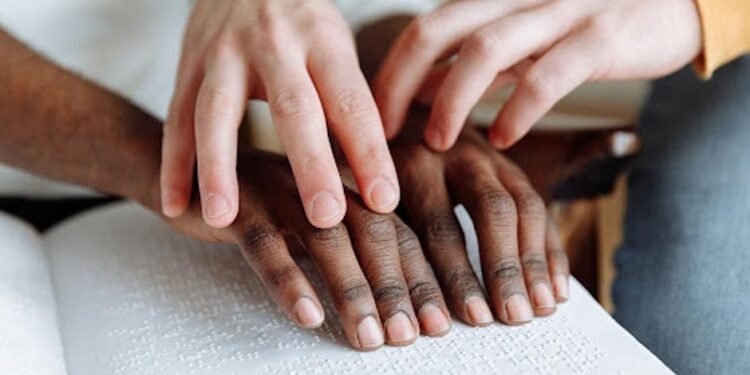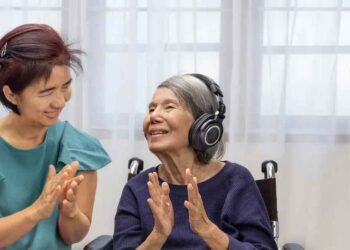Navigating the world of disability support services can often feel overwhelming, especially with the wide variety of options available. Whether you’re seeking support for yourself or a loved one, understanding the essential services that can enhance quality of life is crucial. From healthcare to educational assistance, this guide will walk you through the key support services available for people with disabilities and how they can make a meaningful difference.
Understanding Your Needs and Rights
Before diving into the specific support services available, it’s important to take a step back and assess your unique needs. Disabilities can affect individuals in vastly different ways, so identifying what you need to live a fulfilling and independent life is the first step.
The Role of NDIS Occupational Therapy
For those living in Australia, the National Disability Insurance Scheme (NDIS) is a primary source of support. Among the many services provided by the NDIS, occupational therapy stands out as particularly important. NDIS Occupational Therapy helps individuals develop, recover, or maintain the skills needed for daily living and working. Whether you need assistance with physical tasks, cognitive functions, or adapting your environment to better suit your needs, occupational therapy can be a game-changer in achieving greater independence.
Knowing Your Rights
It’s also essential to be aware of your rights as a person with a disability. In Australia, the Disability Discrimination Act 1992 provides legal protection against discrimination in areas such as employment, education, and access to services. Understanding these rights ensures that you can advocate for yourself effectively when seeking support.
Healthcare Services: A Foundation for Wellbeing
Healthcare is one of the most critical areas of support for people with disabilities. Ensuring access to the right medical care, therapies, and ongoing health management is vital for maintaining a good quality of life.
Primary Healthcare Providers
Your first point of contact for healthcare should be your general practitioner (GP). GPs play a crucial role in managing overall health and coordinating care with specialists. Regular check-ups and open communication with your GP can help address any health concerns early and ensure that your medical needs are met.
Specialized Medical Services
In addition to primary healthcare, individuals with disabilities often require specialized medical services. This might include neurology, orthopedics, or mental health services. Specialists can provide targeted treatments and interventions that address specific aspects of your disability, helping you manage symptoms and improve overall health.
Mental Health Support
Mental health is a critical aspect of overall well-being, particularly for individuals with disabilities who may face additional stressors. Accessing mental health services, such as counseling or therapy, can provide essential support. Many mental health professionals specialize in working with individuals with disabilities, offering tailored approaches that address unique challenges.
Educational and Vocational Support: Building Independence
Education and employment are key areas where support services can have a significant impact. Whether you’re a student or an adult in the workforce, there are a variety of services designed to help you succeed.
Special Education Services
For children and young adults with disabilities, special education services are essential. These services provide tailored educational programs that accommodate different learning styles and needs. Special education can include everything from individualized education plans (IEPs) to specialized support staff who assist with learning.
Vocational Rehabilitation
For adults with disabilities, vocational rehabilitation services are crucial in helping them find and maintain employment. These services can include job training, resume writing assistance, and job placement services. Vocational rehabilitation programs often work closely with employers to create inclusive work environments and ensure that necessary accommodations are in place.
Lifelong Learning Opportunities
Education doesn’t stop after school, and many adults with disabilities continue to benefit from lifelong learning opportunities. Community colleges, online courses, and adult education programs offer flexible options for individuals looking to gain new skills, pursue hobbies, or advance their careers.
Daily Living and Personal Care: Enhancing Quality of Life
Daily living support is another essential area of service for individuals with disabilities, provided through sta accommodation. Whether it’s assistance with personal care, household tasks, or mobility, these services play a key role in maintaining independence.
In-Home Support Services
In-home support services provide assistance with daily activities such as bathing, dressing, cooking, and cleaning. These services are particularly valuable for individuals who wish to remain in their own homes while receiving the care they need. Support workers can visit regularly to provide hands-on help, ensuring that daily needs are met.
Assistive Technology
Assistive technology can be a game-changer for people with disabilities. From mobility aids like wheelchairs and walkers to communication devices for individuals with speech impairments, the right technology can significantly enhance independence. The NDIS offers funding for various types of assistive technology, making it more accessible for those who need it.
Respite Care
Caregivers play a crucial role in the lives of many people with disabilities, but they also need time to rest and recharge. Respite care provides temporary relief for caregivers, allowing them to take a break while ensuring that their loved ones continue to receive high-quality care. This service can be provided in-home, at a respite care facility, or through day programs.
Social and Recreational Services: Building Connections
Social interaction and recreational activities are essential components of a fulfilling life. For people with disabilities, accessing these opportunities can sometimes be challenging, but there are many services designed to help.
Social Support Groups
Social support groups offer a space for individuals with disabilities to connect with others who share similar experiences. These groups can provide emotional support, friendship, and a sense of community. Many organizations offer in-person and online groups, making it easier to find one that fits your needs.
Recreational Programs
Recreational programs designed for people with disabilities offer opportunities to engage in sports, arts, and other leisure activities. Whether it’s adaptive sports, art classes, or theater groups, these programs allow individuals to explore new interests and enjoy a rich social life.
Community Involvement
Getting involved in the community is another great way to build connections and feel engaged. Volunteering, attending local events, or participating in community organizations can help individuals with disabilities feel more connected and valued.
Navigating the System: Tips for Accessing Services
With so many services available, knowing where to start can be challenging. Here are some tips for navigating the system and accessing the support you need.
Start with an Assessment
Many support services require an initial assessment to determine eligibility and specific needs. Whether it’s through the NDIS or another organization, an assessment helps create a tailored support plan that addresses your unique circumstances.
Build a Support Network
Don’t be afraid to reach out for help. Building a network of family, friends, and professionals can provide emotional support and practical assistance as you navigate the system. Your support network can also help you advocate for your needs and ensure that you’re accessing all available services.
Stay Informed
The landscape of disability services is constantly evolving. Staying informed about new programs, technologies, and policy changes can help you make the most of the support available. Consider joining disability advocacy groups or subscribing to newsletters from relevant organizations to stay up-to-date.
Empowering Lives Through Support
Accessing the right support services is key to living a fulfilling and independent life for people with disabilities. By understanding the essential services available—from healthcare to daily living assistance—you can build a comprehensive support system tailored to your needs. Remember, you don’t have to navigate this journey alone. There are countless resources and professionals ready to help you every step of the way, ensuring that you have the support you need to thrive.












